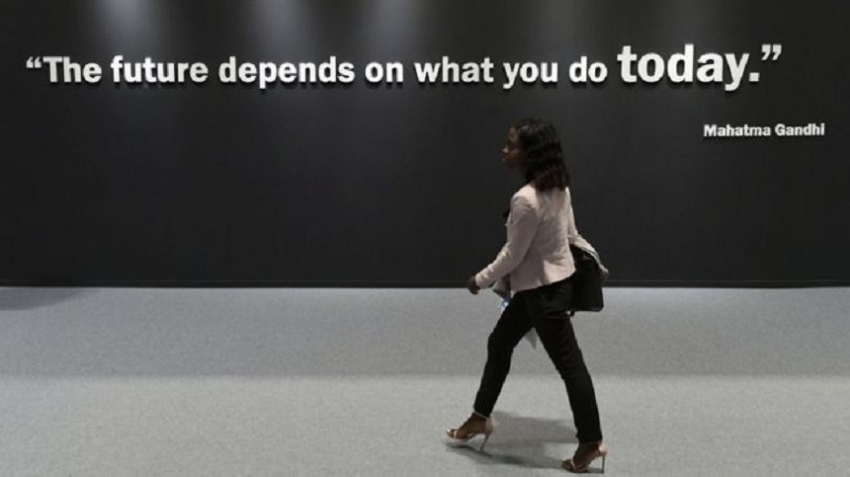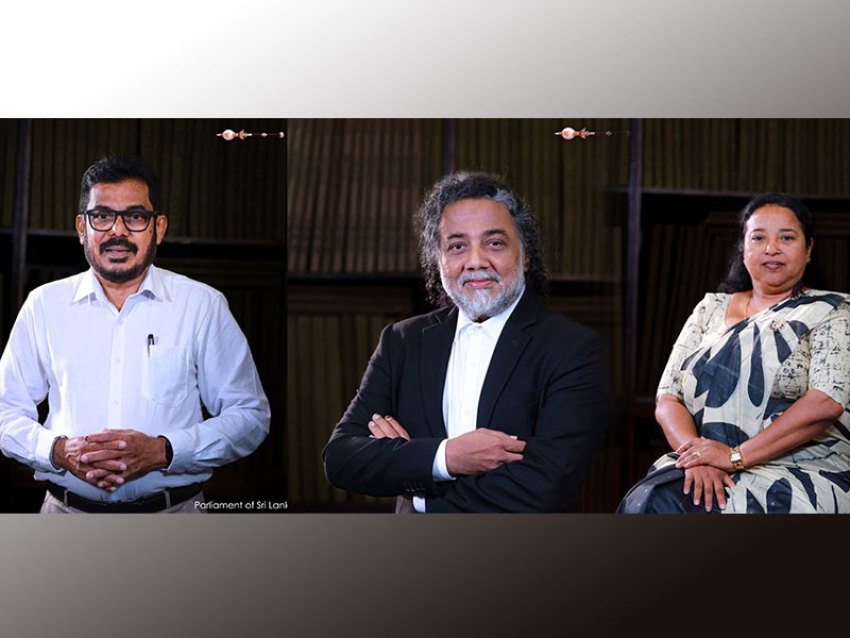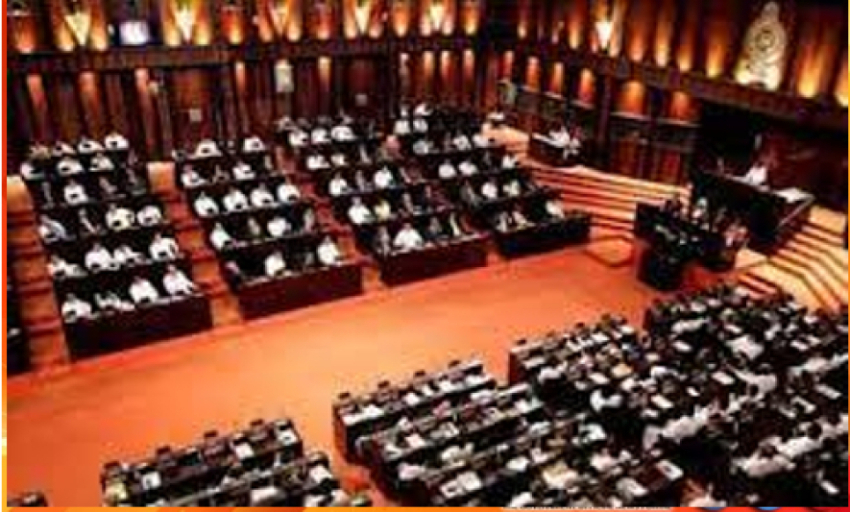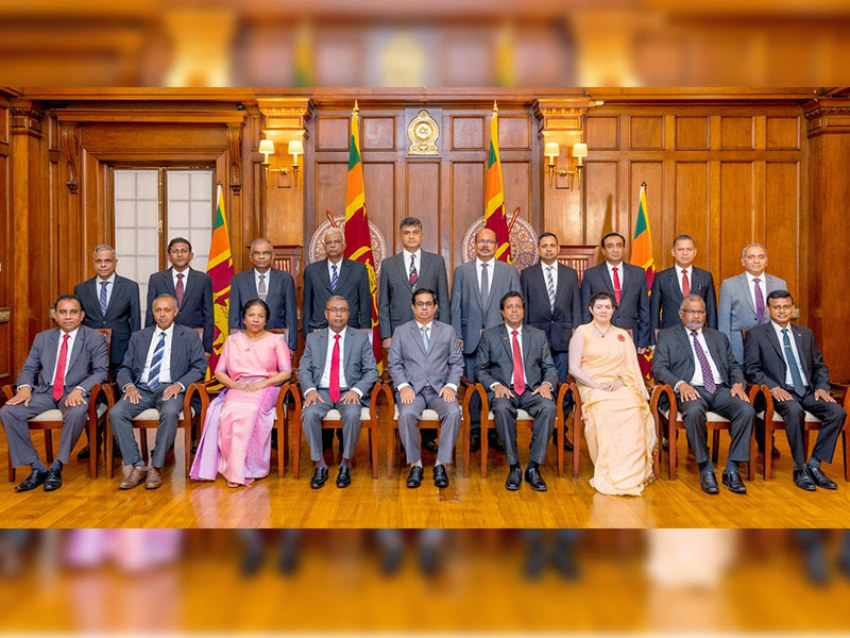Talks in Madrid have gone into extra time as delegates try to agree on measures The Chilean official leading UN climate talks in Madrid has called on delegates to show flexibility, as they struggle to reach agreement on crucial measures needed to tackle climate change. The negotiations, which were scheduled to end on Friday, continued throughout Saturday and into Sunday morning.Carolina Schmidt said a deal was almost there but the outcome needed to be ambitious.The goal is a commitment to new carbon emissions cuts by the end of 2020.The European Union and small island states vulnerable to climate change are pushing for stronger commitments to cut those emissions. Some of the biggest polluters, including the United States, Brazil and India, say they see no need to change their current plans.Ms Schmidt, Chile's environment minister who is the conference's president, said early on Sunday: "I request all the flexibility, all your strength to find this agreement to have an ambitious result."She added: "It's hard, it's difficult but it's worth it. I specially need you. But people in our countries need us."
On Saturday, a new draft text from the meeting was released, designed to chart a way forward for the parties to the Paris agreement, which came into being in 2015.The pact's intention is to keep the global average temperature rise to well below 2C. This was regarded at the time as the threshold for dangerous global warming, though scientists subsequently shifted the definition of the "safe" limit to a rise of 1.5C above pre-industrial levels.The situation was unprecedented since talks began in 1991, said Alden Meyer from the Union of Concerned Scientists.He commented: "The latest version of the Paris Agreement decision text put forward by the Chilean presidency is totally unacceptable. It has no call for countries to enhance the ambition of their emissions reduction commitments."If world leaders fail to increase ambition in the lead up to next year's climate summit in Glasgow, they will make the task of meeting the Paris agreement's 'well below 2C' temperature limitation goal - much less the 1.5 degrees Celsius goal - almost impossible."
Skip Twitter post by @Peters_Glen
Glen Peters
@Peters_Glen
How big is the CO₂ bucket for 1.5°C?
Well, the bucket is about to overflow in a few short years, unless we:
1. Turn off the tap (urgently)
2. Put a hole in the bottom to remove CO₂ (negative emissions)#COP25 #CarbonBudget @FutureEarth @gcarbonproject https://www.globalcarbonproject.org/carbonbudget/index.htm …
This view was echoed by David Waskow, international climate director for the World Resources Institute (WRI). "If this text is accepted, the low ambition coalition will have won the day," he said.The conference in the Spanish capital has become enmeshed in deep, technical arguments about a number of issues including the role of carbon markets and the financing of loss and damage caused by rising temperatures.Responding to the messages from science and from climate strikers, the countries running this 26th conference of the parties (COP) meeting are keen to have a final decision here that would see countries put new, ambitious plans to cut carbon on the table.
According to the UN, 84 countries have promised to enhance their national plans by the end of next year. Some 73 have said they will set a long-term target of net zero by the middle of the century.But earlier in the meeting, negotiators from the Alliance of Small Island States (AOSIS) pointed the finger of blame at countries including Australia, the United States, Canada, Russia, India, China and Brazil.
Protests led by young delegates have seen up to 200 protestors ejected from the talks
They had failed to submit revised plans that would help the world keep the rise in global temperatures under 1.5C this century.At a "stock-taking" session on Saturday morning, Tina Stege, a negotiator with the Marshall Islands delegation, said: "I need to go home and look my kids in the eye and tell them we came out with an outcome that will ensure their future."She added: "The text must address the need for new and more ambitious NDCs and long-term goals. We can't leave with anything else."Reinforcing the sense of division, India, supported by China, Saudi Arabia and Brazil, has been taking a hard line on promises made by richer countries in previous agreements before the Paris pact was signed in 2015.The deal saw every country, India included, sign up to take actions.This was a key concession to the richer nations who insisted that the deal would only work if everyone pledged to cut carbon, unlike previous agreements in which only the better off had to limit their CO2.
But India now wants to see evidence that in the years up to 2020, the developed world has lived up to past promises.For many delegates, the deadlock is intensely frustrating in light of the urgent need to tackle emissions."I've been attending these climate negotiations since they first started in 1991. But never have I seen the almost total disconnect we've seen here at COP25 in Madrid between what the science requires and the people of the world demand, and what the climate negotiations are delivering in terms of meaningful action," said Alden Meyer."The planet is on fire and our window of escape is getting harder and harder to reach the longer we wait to act. Ministers here in Madrid must strengthen the final decision text, to respond to the mounting impacts of climate change that are devastating both communities and ecosystems all over the world."Jake Schmidt, from the US-based Natural Resources Defense Council, said: "In Madrid, the key polluting countries responsible for 80% of the world's climate-wrecking emissions stood mute, while smaller countries announced they'll work to drive down harmful emissions in the coming year."The mute majority must step up, and ramp up, their commitments to tackle the growing climate crisis well ahead of the COP26 gathering."
Also on Saturday, activists staged a protest outside the summit venue to express their frustration at what they see as the failure of world leaders in taking meaningful action on climate change.
Stalemate at UN talks as splits re-appear
Delegates at the climate talks in Madrid are concerned that divisions between rich and poor are re-emerging UN climate talks in Madrid enter their final scheduled day with divisions emerging between major emitting countries and small island states.Negotiators are attempting to agree a deal in the Spanish capital that would see countries commit to make new climate pledges by the end of 2020.But serious disagreements have emerged over how much carbon-cutting the major emitters should undertake.The talks have also become bogged down in rows over key technical issues.Negotiators arrived in Madrid two weeks ago with the words of the UN secretary general ringing in their ears - António Guterres told delegates that "the point of no return is no longer over the horizon".
Protests led by young delegates saw up to 200 protestors ejected from the talks Despite his pleas, the conference has become enmeshed in deep, technical arguments about a number of issues including the role of carbon markets and the financing of loss and damage caused by rising temperatures. The key question of raising ambition has also been to the forefront of the discussions.Responding to the messages from science and from school strikers, the countries running this COP are keen to have a final decision here that would see countries put new, ambitious plans to cut carbon on the table.According to the UN, 84 countries have promised to enhance their national plans by the end of next year. Some 73 have said they will set a long-term target of net zero by the middle of the century.In a rare move, negotiators from the Alliance of Small Island States (AOSIS) pointed the finger of blame at countries including Australia, the United States, Canada, Russia, India, China and Brazil.They had failed to submit revised plans that would help the world keep the rise in global temperatures under 1.5C this century.As well as naming names, AOSIS members were angry at the pressure being put on the island nations to compromise on key questions."We are appalled at the state of negotiations - at this stage we are being cornered, we fear having to concede on too many issues that would undermine the very integrity of the Paris agreement," said Carlos Fuller, AOSIS chief negotiator."What's before us is a level of compromise so profound that it underscores a lack of ambition, seriousness about the climate emergency and the urgent need to secure the fate of our islands."Reinforcing the sense of division, India, supported by China, Saudi Arabia and Brazil, is taking a hard line on the promises made by richer countries in previous agreements before the Paris pact was signed in 2015.They are insisting that the pledges to cut carbon in the years up to 2020 be examined and if the countries haven't met their targets, these should be carried over to the post-2020 era.
Signed in 2015, the Paris climate pact saw every country, India included, sign up to take actions.This was a key concession to the richer nations who insisted that the deal would only work if everyone pledged to cut carbon, unlike previous agreements in which only the better off had to limit their CO2.India now wants to see evidence that in the years up to 2020, the developed world has lived up to past promises."The Paris agreement talks about the leadership of the developed countries, it talks about the peaking of greenhouse gases earlier in these countries, so we need to see these things," said Ravi Shankar Prasad, India's chief negotiator."You have to honour what you agreed."The developed world see the Indian stance as a tactic, where they are trying to go back to the way things were before Paris, with the richer countries doing the most of the heavy lifting while China, India and others do less.Some politicians in attendance at this meeting believe there's too much self interest and not enough countries looking at the bigger picture.
"Frankly, I'm tired of hearing major emitters excuse inaction in cutting their own emissions on the basis they are 'just a fraction' of the world's total," said the prime minister of Fiji, Frank Bainimarama."The truth is, in a family of nearly 200 nations, collective efforts are key. We all must take responsibility for ourselves, and we all must play our part to achieve net zero."As I like to say, we're all in the same canoe. But currently, that canoe is taking on water with nearly 200 holes - and there are too few of us trying to patch them," Mr Bainimarama said.
Methane pulse detected from South Sudan wetlands
By Jonathan Amos
Scientists think they can now explain at least part of the recent growth in methane (CH4) levels in the atmosphere.Researchers, led from Edinburgh University, UK, say their studies point to a big jump in emissions coming from just the wetlands of South Sudan.Satellite data indicates the region received a large surge of water from East African lakes, including Victoria.This would have boosted CH4 from the wetlands, accounting for a significant part of the rise in global methane.Perhaps even up to a third of the growth seen in the period 2010-2016, when considered with East Africa as a whole."There's not much ground-monitoring in this region that can prove or disprove our results, but the data we have fits together beautifully," said Prof Paul Palmer.
"We have independent lines of evidence to show the Sudd wetlands expanded in size, and you can even see it in aerial imagery - they became greener," he told BBC News.Methane is a potent greenhouse gas, and - just like carbon dioxide - is increasing its concentration in the atmosphere.
It's not been a steady rise, however. Indeed, during the early 2000s, the amount of the gas even stabilised for a while. But then the concentration jumped in about 2007, with a further uptick recorded in 2014.
CH4 (methane) is now climbing rapidly and today stands at just over 1,860 parts per billion by volume.
There's currently a debate about the likely sources, with emissions from human activities such as agriculture and fossil-fuel use undoubtedly in the mix. But there is a large natural component as well, and a lot of current research is centred on contributions from the tropics.
Media captionMark Lunt: "There is still huge uncertainty about methane sources"
The Edinburgh group has been using the Japanese GOSAT spacecraft to try to observe the greenhouse-gas behaviour over peatlands and wetlands in Africa, and found significant rises in methane emissions above South Sudan centred on the years 2011-2014.
Believing the region called the Sudd could be the culprit (soil microbes in wetlands are known to produce a lot of methane), the team started looking through other satellite data-sets to make the link.
Land surface temperature observations supported the idea that soils in the region had become wetter; gravity measurements across East Africa also detected an increase in the weight of water held in the ground; and satellite altimeters had tracked changes in the height of lakes and rivers to the south.
"The levels of the East African lakes, which feed down the Nile to the Sudd, increased considerably over the period we were studying. It coincided with the increase in methane that we saw, and would imply that we were getting this increased flow down the river into the wetlands," explained Dr Mark Lunt.
Much of the extra water likely resulted as a consequence of dam releases upstream.
The Edinburgh group published its findings on Wednesday in the journal Atmospheric Chemistry and Physics, and, as an update to the story, Dr Lunt is presenting new data here at the American Geophysical Union meeting.
He's been looking at methane observations made by the EU's Sentinel-5P satellite. Its Tropomi instrument sees CH4 at a finer resolution than GOSAT, and it's clear from the European mapper that methane emissions are still elevated over South Sudan.
The level of activity is nothing like the same as in the early 2010s, but the Sudd wetlands remain an important source.
"It's a huge area so it's not surprising that it's pumping out a lot of methane. To give context - the Sudd is 40,000 sq km: two times the size of Wales. And being that big we expect to see the emissions from space," Dr Lunt told BBC News.




















